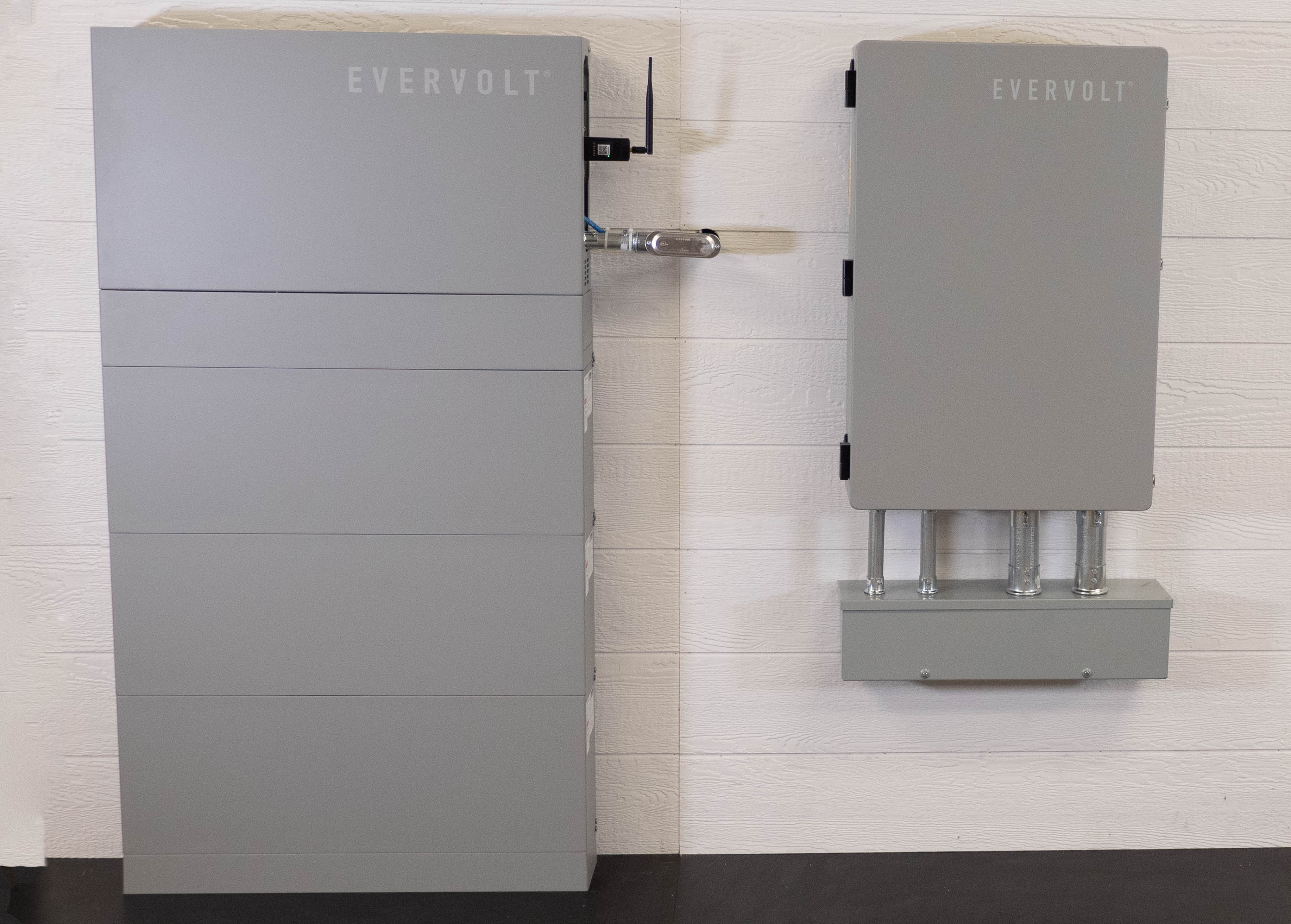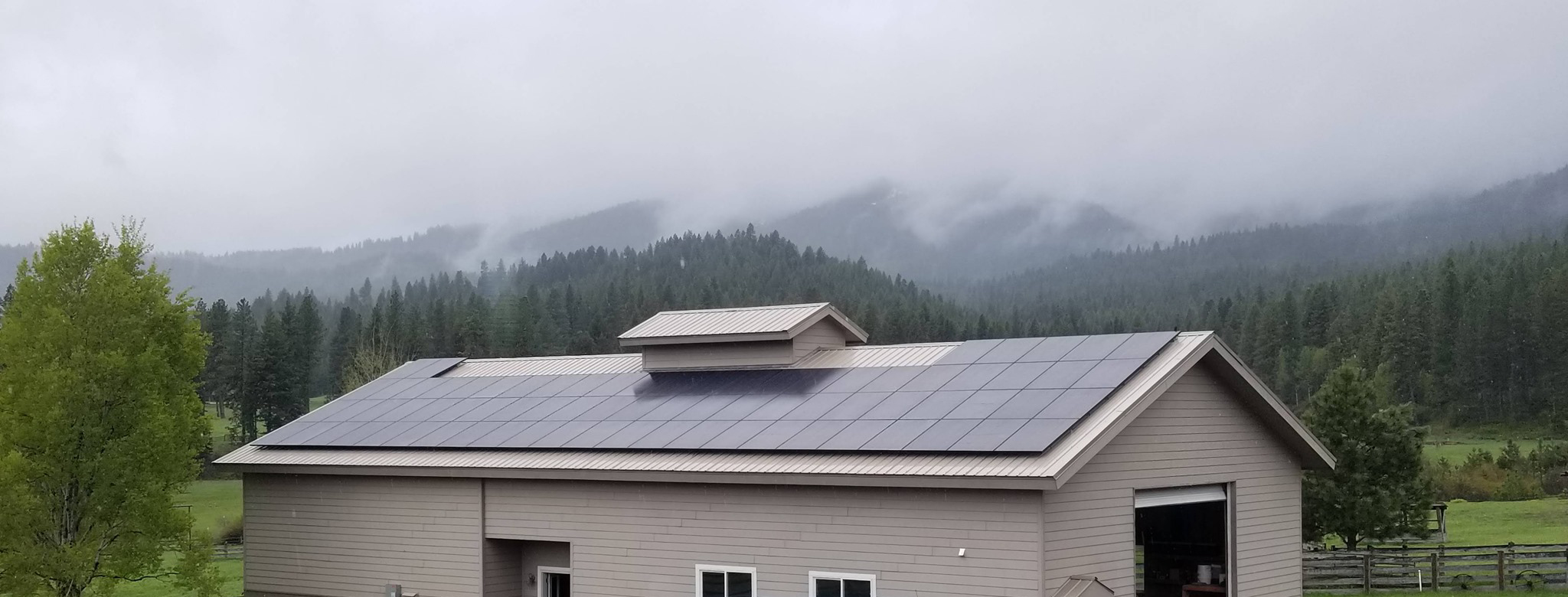In the immortal words of Game of Thrones, winter is coming... What does that mean for your solar panels and your home battery system?
Your photovoltaic (PV) power system — the solar panels and the batteries that they charge — relies on the sun. So it’s natural to wonder what happens when winter arrives, the air temperature drops, and the sun shines for fewer hours a day. Will the solar panels still generate power in the winter? How does cold impact the life of home battery systems?
We tapped Vikki Kumar, Panasonic solar and storage lead systems engineer, to provide her expert advice on how to ensure your solar system performs well into the winter. “As a homeowner, knowing as much as you can about how your system works in all weather allows you to make the most of it,” Kumar says.
In the winter, that includes understanding that freezing weather and shorter days can affect the performance of your system. But that doesn't mean you'll be left out in the cold — there are things you can do to maximize your system's cold-weather performance.
Does cold weather affect home batteries?
The short answer: It can. Have you ever had your cell phone battery die when it gets too cold? Home battery storage uses similar technology to what's found in your cell phone or your electric vehicle, which can make it vulnerable in the cold. Kumar notes that the batteries in your home storage system are usually rated for indoor application only.
Panasonic EVERVOLT Home Battery System, photo courtesy of Panasonic Eco Systems
For example, Panasonic's EVERVOLT home battery system has an operating temperature range of 32 degrees Fahrenheit to 122 degrees Fahrenheit. “If they’re operating outside that range, then that can affect how quickly the battery can charge and then discharge,” Kumar says.
To maximize your battery storage system for cold weather, keep it protected from the elements. Install your home battery in an insulated area such as your garage, your house, or an insulated building. This will ensure maximum performance, even if the temperatures outside are dropping.
How does winter impact solar panels?
Just like home battery systems, solar panels have a recommended operating temperature range. For panels, it’s -40 degrees Fahrenheit up to 85 degrees Fahrenheit. Cold temperatures don’t damage the panels, but they can reduce panels' efficiency (i.e., how effectively they produce power).
You can rely on your stored power if the cold weather impacts the production of your solar panels. “If your batteries are charged to the max, then they can start supplying the load,” Kumar says. In this scenario, you can charge your battery system from the grid when electricity prices are lowest. The stored power in your battery will make up the difference in your panel production.
Kumar notes that solar panels do come with optimizers that help ensure your home is always getting the right amount of power. So even as light and temperatures change, the supply of electricity from your panels to your house should remain relatively steady.
Photo courtesy of EGT Solar and Panasonic Eco Systems
How can you get the most from your panels in the winter?
Kumar says the best way to ensure you’re getting the most from your panels during the cold, dark days of winter is to maximize their sun exposure. Installers usually recommend installing panels on south-facing roofs, where they get the most sun. That way, they'll soak up as many rays as possible even on shorter and colder days.
Keeping your panels clean also ensures they capture as much sunlight as possible. Clear leaves, dirt, and any other debris off of your solar panels before winter begins to keep the panel surfaces free from obstruction. Similarly, watch for any tree branches or other foliage that could block light from reaching your solar panels. Keeping your trees and bushes in check will allow your solar panels to absorb as much sunlight as they can.
The big takeaway: Your battery and panels can handle cold temperatures, but there are a few things you can do to maximize performance during the winter months. By understanding how your battery storage and panels work in cold temperatures, you can still reap the reward of your PV system no matter the season.
Did you know Panasonic's home energy solutions can make your home energy independent and protect you from power outages? Learn more and see how you can save an extra $500 on solar panels.





